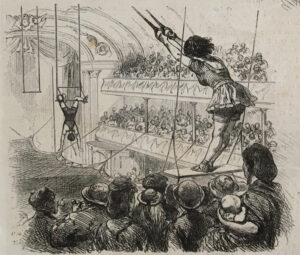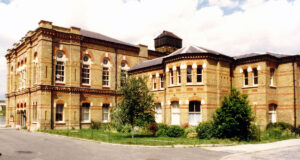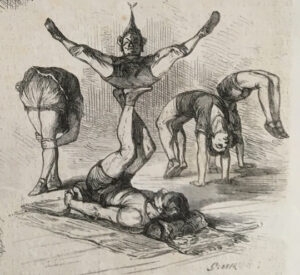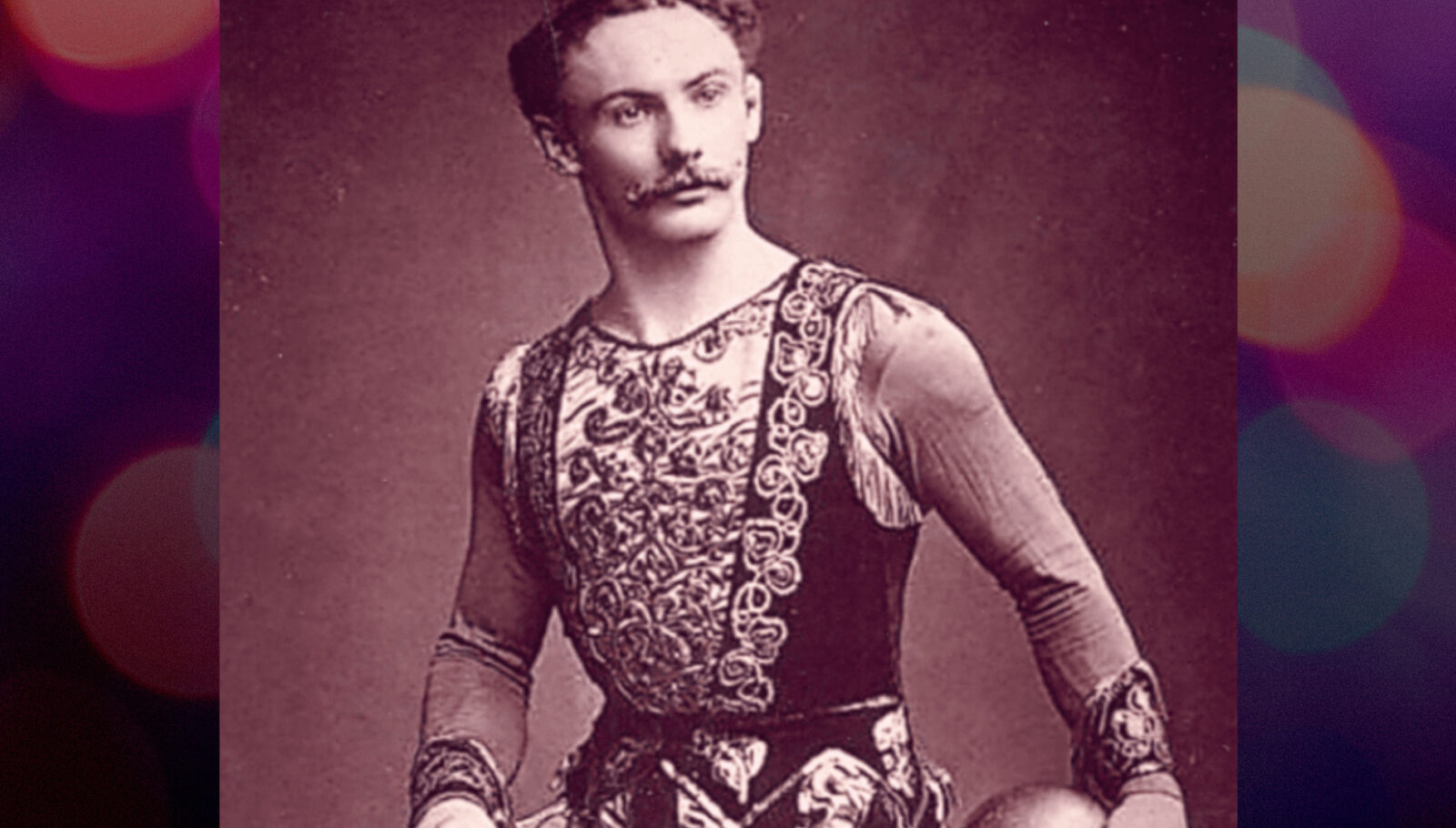Jewels of the Past: The British Music Hall Society Launches Conference
For Britons of the 19th and early 20th centuries, the music hall promised an evening of fun, leisure, and variety art—and now the British Music Hall Society hopes to channel that spirit into a new event that takes artists and academics alike on a walk through theatre history. Here’s what (and who!) you can expect to see at the first annual British Music Hall Society Weekend Conference: How the Music Hall Worked 1840-1918.
Make no mistake about it: there is a whole lot more to British music hall than just the music. It was a full-fledged theatre genre. Those of us who grew up outside of the UK (or were born after World War I) might not have heard of it by that term before except in theatre history classes. You might even initially, as I did, take it to mean a formal venue where people wearing fancy gowns and well-starched suits go drink red wine and listen to an orchestra play Bach or Mozart. But once you hear it described, this genre will no doubt sound familiar to any circus performer. Music halls in reality were lively gathering spaces for people of any class; places of community; venues where you could watch someone do the impossible. On its stages, you would see such staple acts as acrobats, comedians, flying trapeze… you name it, they had it. And this gathering hopes to bring the same types of people together.
Since its founding 60 years ago, the British Music Hall Society has sought to preserve and breathe new life into this classic genre through study, archiving, gathering—and now, the launch of an official Weekend Conference in 2023. Much like the music hall itself, this conference is probably not what you’re thinking of when you hear the word “conference”: rather than being strictly academic in its approach, it aims to inform and entertain attendees in equal measure, making the history of Music Hall feel as varied and broadly accessible as did the halls themselves.

Taking place the weekend of October 28 at London’s Cinema Museum, this event welcomes everyone, from researchers to performers and variety arts enthusiasts, to come and delve into several key aspects of Music Hall: Speciality Acts, Performing Families, and Agents and Circuits (including Continental ones). Within that span fall numerous 6- and 20-minute talks on topics like historic aerialists, jugglers, and American vaudeville acts on the British stage, as well as speakers such as circus researcher Heather Tweed and two authors on our recommended books list, Drs. Kate Holmes and Steve Ward. Attendees will also be able to browse exhibits on circus photography and juggling at their leisure, join in on a guided walk, learn how to navigate archives, and attend a film screening.
For more details about this event, we reached out to British Music Hall Society Secretary Charlie Holland. Charlie himself comes from a circus background, having been both a performer and the Programme Director at The Circus Space (now the National Centre for the Circus Arts), as well as compiling the 1998 book Strange Feats and Clever Turns about speciality acts in Music Hall and Vaudeville. “Circus acts beyond the circus has been a long-time interest of mine,” he says.
Carolyn Klein (CK): For those who aren’t familiar with the genre and history of British music hall, how would you describe it as a concept?
Charlie Holland (CH): Music Hall came of age in the second half of the nineteenth century as towns and cities expanded and the workforce had some time and money to spend on leisure, and entrepreneurs built venues for popular and affordable entertainment. These were sociable halls, with tables to sit at and plentiful refreshments available. There were a range of acts—singers, comics, acrobats, trapeze acts etc.—depending on what the hall’s proprietor could find and afford, and what he thought his audience would like. The 1843 Theatres Act split theatre venues from music and dancing ones. In the former, plays were allowed, but eating and drinking weren’t. The Music Hall was the other way around; alcohol and food were allowed, but spoken dialogue was essentially outlawed. Monologues were fine.
Towards 1900, as its popularity grew, promoters built larger and larger venues, increasingly moving to theatre seating as more people could be accommodated. Music Halls grew to seat 1000 or more people, and the term “theatre of varieties” came into use. The growth of cinema and a move to more structured shows and revues in the years up to WW1 led to “Variety” becoming the more common term.

CK: Tell us a bit about your organization and its history. What sort of activities do you do?
CH: As Variety in turn was impacted by television and venues were closing, the British Music Hall Society was founded in 1963 by Ray Mackender and Gerald Glover to cherish the jewels of the past and actively support the interests of the future. We have a quarterly magazine, monthly talks, occasional shows and social events, active social media accounts, and an archive—and now a conference, too.
CK: How does the circus connect with the music hall?
CH: There were established circuses and pleasure gardens in towns and cities, so they were a ready source of entertainers for the music hall promoter and part of it from the outset. Many of the names that we associate with circus history, like the juggler Paul Cinquevalli and the acrobatic Kremo family, worked extensively in Music Hall.
CK: The British Music Hall Society has been around for sixty years, and this is the first time you’ve held a formal conference. What inspired you to put together an event like this? What kind of work did it require?
CH: We’ve since discovered there was a one-off conference in the 1980s, but we hope that this will be the first annual conference. We wanted to have an event that gave those interested in Music Hall history a chance to spend a day or two together and look in greater depth at a topic or two. Speciality acts and children take pride of place this year.

CK: How were the presenters selected for this event?
CH: We put out a call for speakers and had a tremendous response—it seems there was a pent-up demand! We emphasised that we welcomed academics, but the event is for a general audience, so their talk must be in plain English! We also requested talks about broader topics than one person or family’s life story. Two members of the Society’s committee, Alison Young and myself, worked with an academic, Sophie Nield, to determine the timetable.
CK: What part of this inaugural program are you the most excited about?
CH: The expertise of the speakers is awesome—there will be such a range and a depth of knowledge in the room, and we’ve built in time for people to talk with each other, not just listen. It’s great too that the venue is within walking distance of the first grand music hall and the first circus building!
(P.S. Want to hear more from Charlie? You can attend his 20-minute talk “Aerial Skirmishes: Flying Children and Competitive Adults in the 19th Century Music Hall” on conference weekend!)
Which begs the question… how can you take part in this event? Tickets, as well as the full program details and list of speakers, are available online here. Buy yours before Monday, September 11, to get the early-bird price special. But don’t wait too long to make your reservation—there are only 80 spaces in total at this conference, so it is best to book yours well before conference weekend comes around in late October. If you want to get a taste of British Music Hall, revel in the proud history of variety art, and make some new connections while you’re at it, then the Cinema Museum will give you the perfect place to begin.
Main image shows early 20th century performer Paul Cinquevalli...
Do you have a story to share? Submit your news story, article or press release.





